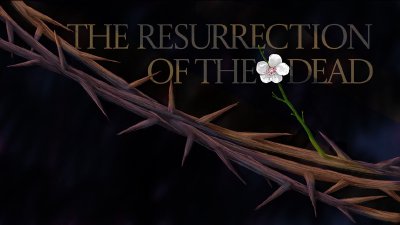Owen Meany is a fictional character in John Irving’s novel, A Prayer for Owen Meany. If I could give you a one paragraph commentary on I Corinthians 15, it might be this. Here is what he says:
I find that Holy Week is draining; no matter how many times I have lived through his crucifixion, my anxiety about his resurrection is undiminished—I am terrified that, this year, it won’t happen; that, that year, it didn’t. Anyone can be sentimental about the Nativity; any fool can feel like a Christian at Christmas. But Easter is the main event; if you don’t believe in the resurrection, you’re not a believer. (John Irving, A Prayer for Owen Meany)
Paul would like that. In fact, Paul actually hints at that when he says that, by denying the resurrection, perhaps many had believed in vain. Resurrection is the gospel! In our text this week, Paul basically asks those who are doubting the bodily resurrection of Jesus to have the courage of their convictions, and then he outlines a bunch of things that are true if there is no resurrection of the dead. It is terrifying. Terrifying but essential.
This Sunday, we will talk about what life and reality look like if Jesus is not raised from the dead. We are so often tempted to think of Christianity only in terms of morality, as we often see parents who have long abandoned the church return, only so that their children can get a moral basis for life. Paul would basically tell you that is really a ridiculous proposition. How so? Join us Sunday and we will talk about it.






